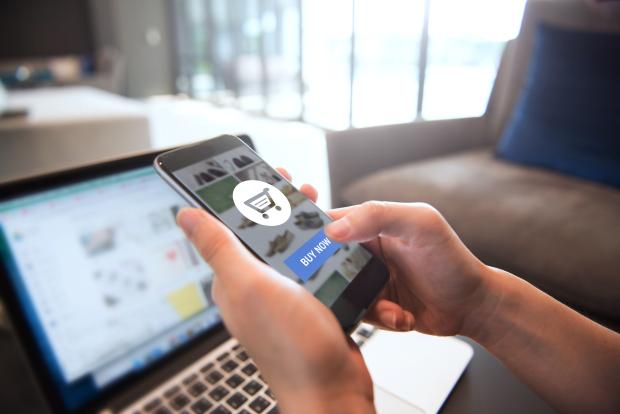Online Security - Internet Banking and Shopping
The World Wide Web is full of exciting and useful websites and services that allow us to shop online for almost anything you could think of, as well as being able to manage your money with e-banking. However, there are unfortunately some websites that are there to mislead us or defraud us out of our hard earned money and cyber criminals wanting to get hold of our data. Follow these tips to use the internet safely:

Secure Shopping:
- Use an up to date browser. Old browsers will not have up to date features to protect you from unsafe websites and may have their own software vulnerabilities. You can check if your web browser is up to date by visiting the manufacturer’s website support pages, or by visiting www.updatemybrowser.org
- Check the address bar to make sure you are on the correct website you intended to visit. You can check if a website has anything malicious by using tools such as Google’s Safe Browsing Site Status checker.
- When shopping online it is good practice to limit visits to reputable brands that you know or have heard of before, and if in doubt, maybe ask a friend or check out reviews of a website before proceeding with an order.
- Don’t give more information that is needed for your transaction.
- Consider more secure payment options, e.g. use a separate card not linked to your main bank account, or payment services like PayPal. Using a credit card can offer good consumer protection and will also mean that the retailer will not have your debit card details linked to your main bank account. Check your credit card provider’s terms and conditions for more information about consumer protection.
- Be wary of any emails from what might look like a reputable retailer that you have purchased from in the past. Don’t click on links or attachments in emails that you are not expecting. Read our Phishing (email) and Smishing (text message) guidance for more information on what to look out for.
- More information can be found on the National Cyber Security Centre’s website on Shopping safely.
Secure Banking:
- Only use a secure and trusted device to access your e-banking. Never use shared computers and never use free public Wi-Fi to carry out any banking business online.
- Check your statements regularly and sign up for mobile alerts for transactions so you are aware when a transaction takes place.
- Never disclose passwords or other personal information in response to an email, phone call or text message purporting to be from your bank. Banks will never send you emails asking you to divulge information like this.
- Most banks will have some sort of additional verification after you enter your password, for example a card reader that generates a unique single use code. Make sure to keep this secure at all times.
- Beware of phishing or scam emails claiming to be from your bank. Your bank will never send an email starting with “sir” or “madam” they will use your name and something else like your postcode or part of your account number. Contact your bank directly if in doubt.
- Don’t click on links, download attachments or take any other action if you’re unsure about the sender of the email or text.
- Send suspicious texts to 7726 and phishing emails to report@phishing.gov.uk